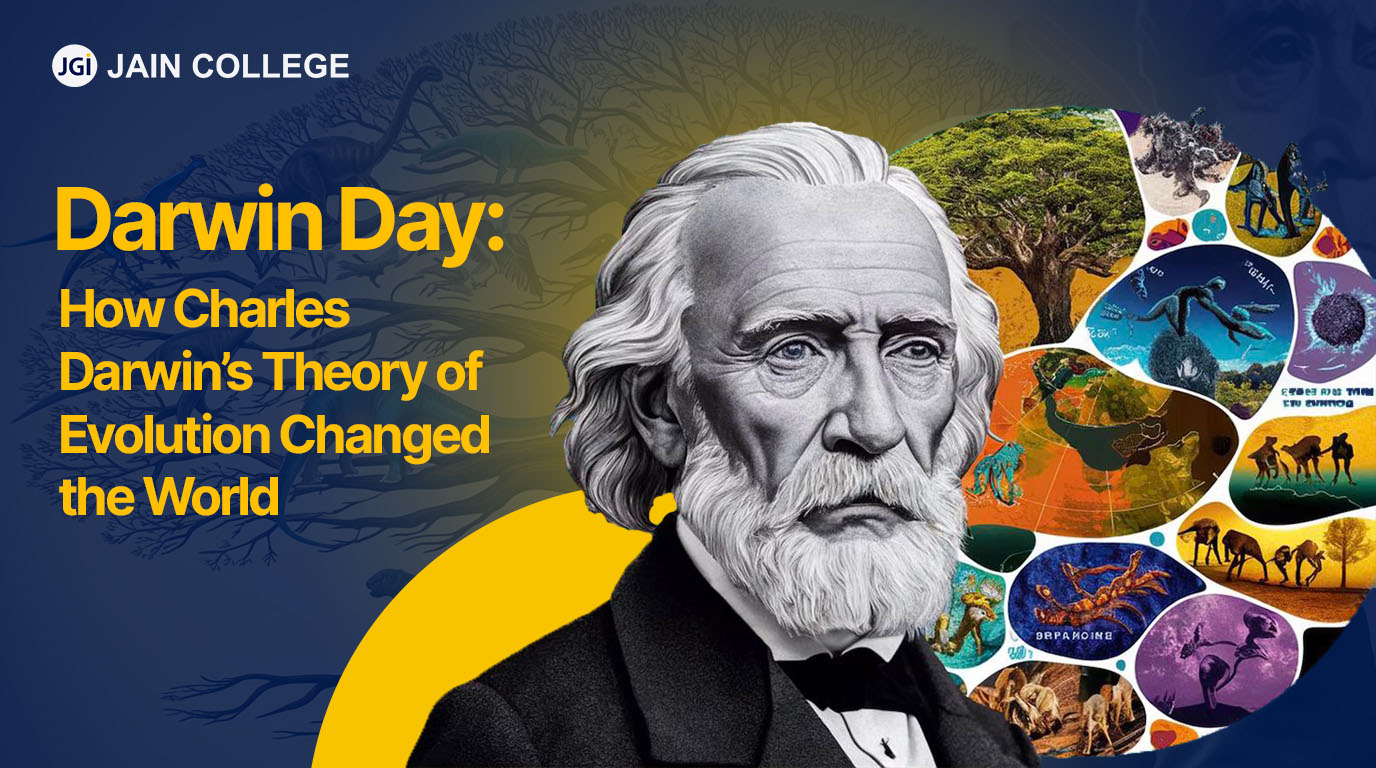
Every year on February 12, the world commemorates Darwin Day—a day to celebrate the life and legacy of Charles Darwin, the individual who revolutionised our knowledge of the natural world. His significant theory of evolution through natural selection, published first in On the Origin of Species (1859), revolutionised science, transformed biology and continues to shape research, medicine, and even philosophy today.
But who was Charles Darwin? How did his theory of evolution revolutionise the world? And why is Darwin Day celebrated today? Let's learn about the legacy of his thoughts and why they still captivate scientists, teachers, and curious minds worldwide.
Charles Darwin (1809–1882) was an English naturalist, geologist, and biologist. Born into a family of thinkers, he studied medicine before majoring in theology and natural sciences. His actual voyage of discovery was in 1831, when he boarded the HMS Beagle. This British naval vessel sailed around South America, the Galápagos Islands, and other world regions.
During the trip, Darwin saw wildlife, fossils, and geological formations, which made him rethink the then-dominant supposition of the time—that species were fixed and immutable. Instead, he found evidence of a pattern that revealed that species evolved, adapting to their surroundings by a process he later formulated as natural selection.
At the core of Darwin's theory was the concept of natural selection, which can be encapsulated in three key points:
Variation – Members of a species differ from one another.
Survival of the Fittest – Organisms with characteristics that enable them to survive and reproduce are likely to pass on their genes to the next generation.
Gradual Change – Small changes accumulate over time, and new species evolve.
This was a radical concept in the 19th century. Most people were creationists, believing all species were created by a divine force and had remained unchanged since creation. Darwin's theory countered this, proposing a scientific reason for the diversity of life on Earth.
Darwin's theory of evolution wasn't a scientific revolution alone. It changed the way humans perceive life, nature, and themselves. Here's how:
Before Darwin, biology was merely classification and description. His work turned it into an explanatory science. Scientists were able to trace the relationships between species, understand why organisms evolve, and predict how species would grow in the future.
Darwin's concepts were the basis of modern genetics. Although he didn't know about DNA, his theory provided the basis for the work of Gregor Mendel on genetics, which later explained how traits were inherited. Evolutionary biology is essential in combating disease, vaccine development, and antibiotic resistance.
One of the most contentious ideas of Darwin's theory was that humans evolved from a common ancestor with the apes. This contradicted religious doctrine and revolutionised anthropology, psychology, and even philosophy. Today, fossil records and DNA studies firmly uphold Darwin's assertion.
Darwin's work helped humans understand that all life is connected. His studies on how species change to fit the environment influenced conservation, biodiversity, and climate change research.
The idea that humans and animals share a common ancestor influenced ethics and psychology. Researchers like Sigmund Freud and thinkers like Richard Dawkins built on Darwin's ideas, influencing arguments on morality, free will, and the argument on human behaviour.
Darwin Day is not just a celebration of one individual's work. It is a day to celebrate:
Science and logical thought – Encouraging curiosity and scientific literacy.
The power of observation – How small details can have substantial revolutionary discoveries.
The beauty of nature – The realisation that life is constantly evolving and changing.
The importance of questioning – Questioning the status quo and searching for evidence.
Schools, colleges, and science centres across the globe organise events, lectures, and discussions on February 12 to create awareness about Darwin's work.
Even after 165+ years, Darwin's theory of evolution is one of the most impactful scientific ideas ever imagined. Scientists continue to find new evidence supporting his theory, from fossil findings to genetic research.
In the contemporary world, evolution helps us understand:
Why some viruses develop resistance to drugs (e.g., COVID-19 mutations).
How plants and animals evolve to adapt to climate change.
How genetic research can help build medicine and agriculture?
How artificial intelligence learns from the environment (based on natural selection).
Even though it's vital, evolution remains contentious in some parts of the globe, and many people oppose it on religious or cultural grounds. Darwin Day is so significant—it reminds us of the importance of scientific discovery, education, and critical thinking.
Charles Darwin's perseverance, grit, and devotion to the truth revolutionised how we think about life on Earth for good. His theory of evolution by natural selection provided a paradigm for biology, medicine, anthropology, and even contemporary technology.
Darwin Day is more than a tribute to his life—it's a reminder to keep questioning, learning, and discovering. Whether you're a student, a scientist, or simply someone who loves nature, Darwin's legacy inspires us all.
So, this February 12, take a moment to admire the wonder of evolution, look at the natural world with fresh eyes, and celebrate the strength of science and discovery!

JAIN PU College, a part of the renowned JGI Group, is committed to empowering students with quality education.
Beyond academics, the college ensures its online content reflects the same standard of excellence. Every blog and article is meticulously vetted and proofread by subject matter experts to ensure accuracy, relevance, and clarity. From insightful educational topics to engaging discussions, JAIN PU College's content is crafted to inform, inspire, and add value to its readers, reflecting the institution's commitment to intellectual growth and innovation.
View all Blogs